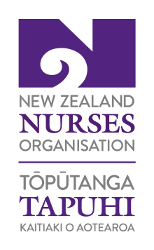 New Zealand Nurses Organisation media release, 6 March 2020
New Zealand Nurses Organisation media release, 6 March 2020
The New Zealand Nurses Organisation says failure to include nurses, midwives, health care workers and kai mahi hauora as defined staff in the Protection for First Responders and Prison Officers Bill will only serve to further institutionalise the abuse nursing staff face on a daily basis.
The bill introduces new protections for first responders, defined as staff from the police and emergency health and fire services, in the Crimes Act 1961 and the Summary Offences Act 1981.
NZNO College of Emergency Nursing New Zealand (CENNZ) Chair Dr Sandra Richardson says verbal abuse, physical assault and sexual innuendo or threats by either patients or accompanying persons is commonplace for nurses.
“Our members tell us that violence in the workplace happens every day, and that the expectation is that they will just accept it as part of the job. Instances of reported violence tend to get swept under the carpet and nurses often don’t bother with them. That means levels of violence are likely higher than what records might suggest.”
In a 2019 membership survey, 10 percent of NZNO members indicated that, during the last year, they had been either physically assaulted, verbally abused and/or subject to sexual innuendo, abuse or threats. The highest rates of abuse occurred in emergency departments or in mental health or aged care settings.
“ACC information shows assaults on DHB nurses are the third-highest cause of ACC claims by nurses and that physical injuries from assaults make up 14 percent of all DHB nurses claims (other DHB occupations are at just 10 percent,” Dr Richardson said.
“If people in Aotearoa New Zealand want to continue receiving high quality, professional care from a specialist nursing workforce, there need to be safeguards in place.
“Inclusion of nursing as a protected profession within the First Responders and Prison Officers Bill is one way of demonstrating an ongoing responsibility and recognition of the need to support this workforce. It’s not enough on its own, but it is a necessary starting point.
“This is a completely unacceptable omission reflecting an inaccurate understanding of what professions make up the first responder health workforce. It sends a clear message that our nursing staff are expected to just put up with being abused. They deserve so much better.”
NZNO and CENNZ will be making oral submissions to the Justice Select Committee on Monday 9 March demanding that nurses, midwives, health care workers be included as first responders in the bill.
NZNO Professional Nursing Advisor Suzanne Rolls is presenting at around 10.05am. Dr Sandra Richardson, NZNO College of Emergency Nurses New Zealand is presenting around 12.35pm.
-Ends-
Media inquiries: Rob Zorn, NZNO Media and Communications Advisor: 027 431 2617.